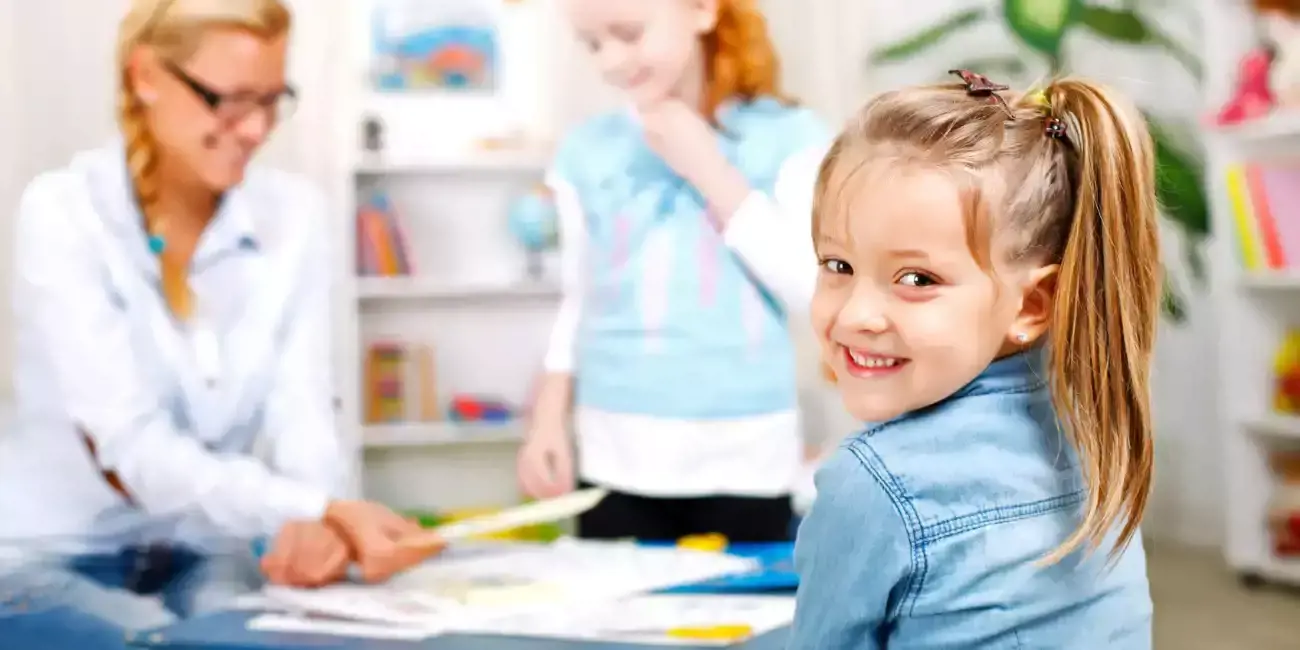You child's first day at pre-school will be an exciting and emotional event for the whole family. As a parent the thought of sending your child off to pre-school could well be slightly traumatic and for children the reality of starting ‘school' can be a scary yet highly anticipated event.
Pre-school is designed to help children transition from life in the family, or a childcare centre, to school. Pre-school programs are designed to develop children's communication, problem solving and thinking skills and to familiarise them with the routines and rhythms of school life.
Emphasis is placed on the importance of teaching children independence and giving them the confidence to ask for what they want or need in a classroom environment.
With a little preparation and planning prior to the big day you can help ensure your child's first day at pre-school is a positive and rewarding experience for all of you.
Before the First Day
Talk to your child about pre-school and what an exciting adventure it will be. Have a chat to your child's future teacher and principal and gain as much information as possible so you can answer all your child's questions about what they will do, where they will go to the toilet, where and when they will eat lunch and so on. Being as thorough and as honest as you can, will hopefully ease your child's concerns.
You can help your child prepare mentally for pre-school by spending time with them during the day or at weekends doing activities for concentrated amounts of time, such as reading a book together for fifteen minutes or playing a board game. Listening and directional games such as Simon Says will teach your child how to follow instructions. Learning without even knowing it - that's the plan, right?
In the weeks leading up to pre-school encourage your child to be as independent as possible when it comes to dressing, feeding, going to the toilet, looking for things and washing their hands. This will give your child the confidence to perform these tasks on their own at pre-school.
If possible spend time with other pre-school children in the days leading up the starting pre-school so your child builds up a sense of anticipation and confidence in dealing with other pre-schoolers.
Visit the local pre-school with your child during school hours. This will ensure your child is familiar with the staff and surroundings and will give you an opportunity to ask any questions you may have.
Find out what your child should take with them to pre-school for example, sun hat and sun block, water bottle, lunch box, pencils. Make a point of labelling all of the items, this will help your child identify their belongings and will save money and possible upsets in the case of your little one losing something important to them.
On the First Day
Get up early to ensure you have plenty of time to get everything done in a peaceful and positive environment. There's nothing more unsettling to everyone than rushing about in the morning and landing at your destination frazzled. Yes, your kids will feel that more than you will. It's imperative to be organised.
Plan a special breakfast for your pre-schooler, make a fuss and present them with a small gift, such as a new bag or a ‘Starting Pre-school Certificate’. This is guaranteed to make your child feel very important in their new role.
Pack a change of clothes, so that your child has something of their own to change into, in the case of an accident. These things sometimes happen but it's always best to have clothes on hand and assure your child that if it does, it's OK, you're prepared.
When you arrive at the pre-school, take your child in, show them where to put their belongings and introduce them to the teacher.
If you are leaving straight away, give your child a cuddle and kiss, say good bye in a positive voice and leave. Try not to turn around if your child starts crying as this only prolongs the inevitable. Remember almost as soon as you are out of sight your child will have stopped crying… and you're allowed to shed some tears at this time too - not before!
If you're staying, let your child do their own thing, but remain within their line of vision. Encourage your child to be as independent as possible. If you leave before the end of the session, give your child a kiss and a cuddle, and say goodbye. This is so important to them. If you don't say goodbye, they won't know you're gone which is cause for anxiety and more upset.
In the Long Term
If you have time, try and get involved in your child's school life. This might include helping out in the classroom from time to time, going on class trips or assisting with special events such as school fetes.
Maintain regular communication with your child's teacher, both on a formal and informal basis. Remember you know your child better than anyone and are in the best position to provide the teacher with information to help them ensure your child receives maximum benefits pre-school.
Advise your child's teacher if something happens at home which could impact on your child's performance at pre-school. Things which might affect your child include the birth of a sibling, divorce, moving house, visitors or a death or illness in the family. All of these changes can impact your child, even if they don't show it.
Remember that pre-school should be a positive and rewarding experience for your child. By employing some of the suggestions provided above you will be working to ensure that your child has a great time from the outset.
Soon enough, your preschooler will be ready for big school!


































